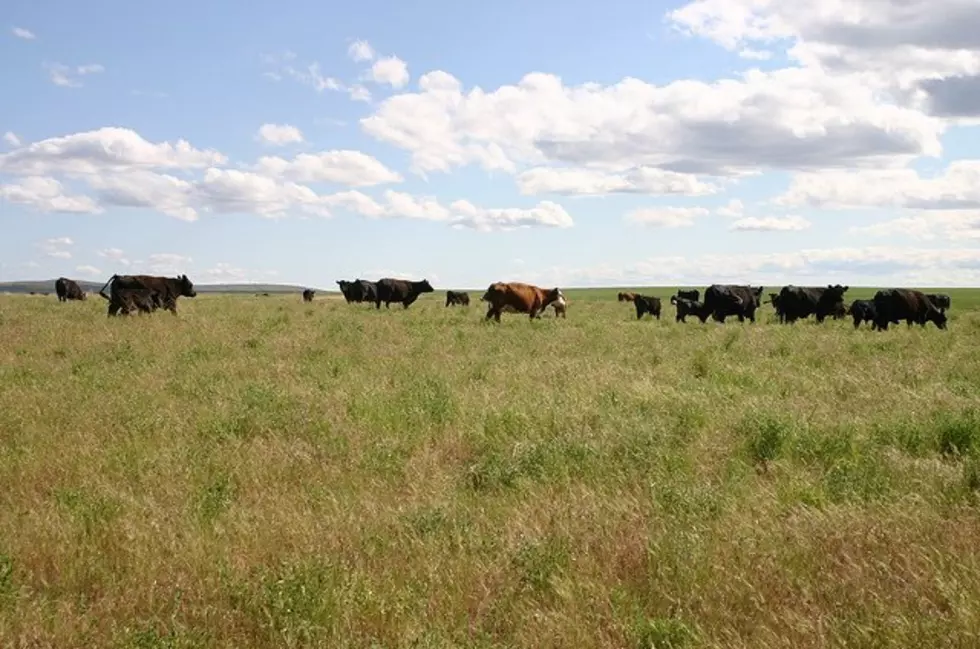
Draft Report Rejects The Idea Of Removing The Snake River Dams
Saying it would destabilize the power grid and increase overall greenhouse emissions, the long-awaited federal report out Friday rejected the idea of removing four hydroelectric dams on the Snake River. The report said Hydropower generation would decrease by 1,100 average megawatts under average water conditions, and 730 average megawatts under low water conditions. The risk of a regional power shortages would more than double and the lowest-cost replacement power would be $200 million a year, the report said. Those adjustments would increase the wholesale power rate up to 9.6%, the authors wrote.
Environmental groups who have pushed for years for the dams to come down immediately blasted the report.
“The science shows that pulling out the four lower Snake River dams is the only way to save Columbia River salmon," Meg Townsend, an attorney for the Center for Biological Diversity, told ABC News. She and other scientists also warn that southern resident orcas are starving to death because of a dearth of the chinook salmon that are their primary food source.
U.S. District Judge Michael Simon ordered the U.S. Army Corps of Engineers, the Bureau of Reclamation and the Bonneville Power Administration to revisit the impact of the hydroelectric system in 2016 while overseeing litigation over salmon. Friday’s announcement weeks after Washington Governor Jay Inslee conducted a survey looking at the impact to the eastern Washington economy if those for dams were removed.
The 14 federal dams on the Columbia and Snake rivers together
produce 40% of the region's power — enough electricity to power nearly 5
million homes, or eight cities roughly the size of Seattle. They also contain a system of locks that
allows cities nearly 500 miles inland from the Pacific Ocean access to Asian
markets via barges that float down the massive rivers to the sea. Roughly 50
million to 60 million tons of cargo navigate the Snake and Columbia River
system each year.
The report Friday is a draft and will be subject to 45 days of public comment. A final report, which will include the agencies' final decision, is expected in September.
Here are the ways you can submit your comments and thoughts (The
comment period closes April 13th)
- Written comment
via postal mail, postmarked by April 13, 2020, to:
U.S.
Army Corps of Engineers, Attn: CRSO EIS
P.O.
Box 2870, Portland, OR 97208-2870
- At a public
comment meeting, written comments, or verbal comments of up to 2 minutes will
be accepted at each of these meetings.
Doors open at 4 p.m.
Lewiston, Idaho March 17 Red Lion Hotel,
621 21st St. Kennewick,
Wash. March 18 Red Lion Hotel,
1101 N. Columbia Center Blvd. Seattle, Wash. March 19 Hilton Seattle
Airport, 17620 International Blvd. Spokane, Wash. March 25 DoubleTree City
Center, 322 N. Spokane Falls Ct. Kalispell,
Mont. March 26 Red Lion, 20 N.
Main St. Portland, Ore. March 31 Oregon
Convention Center, 777 N.E. Martin Luther King Jr. Blvd. (east
entrance)
You can also make comments on-line, by Clicking Here. Americans with Disabilities Act accommodations or translation services can be made available at these meetings with 72-hour advance notice. Please call 800-622-4519 or email a request to info@crso.info.
If you have a story idea for the Washington Ag Network, call (509) 547-1618, or e-mail gvaagen@cherrycreekradio.com
More From PNW Ag Network









